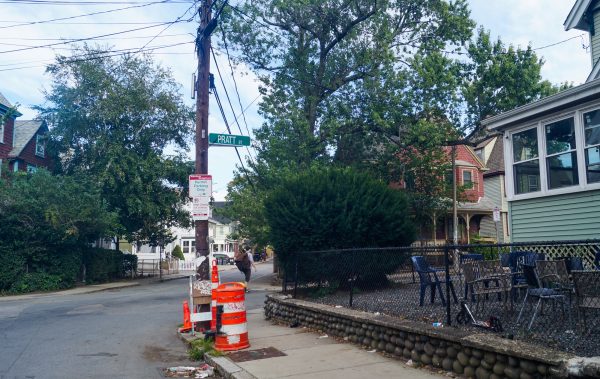Since the U.S. Department of Homeland Security initiated Operation Patriot 2.0 Sept. 6, U.S. Immigration and Customs Enforcement officers have conducted a series of raids across Boston neighborhoods.

This wave of raids follows Operation Patriot, which resulted in 1,500 arrests statewide in May.
“Under President Trump and Secretary Noem, nowhere is a safe haven for criminal illegal aliens,” Tricia McLaughlin, the assistant secretary for public affairs, wrote in a statement. “If you come to our country illegally and break our laws, we will hunt you down, arrest you, deport you, and you will never return.”
At a city council meeting Sept. 10, Councilor Liz Breadon condemned a parent being taken by ICE “in the vicinity” of Brighton High School while taking her child to school.
“Boston will not support these illegal attacks on our community nor will we be intimidated. As a community, we are working together to provide for those in need at this time,” wrote Breadon in a statement to The Daily Free Press.
Along with Breadon, nonprofits across the Allston-Brighton district are grappling with ICE’s aggressive approach and its debilitating community impact.
Charlesview, Inc. is an organization based in the Allston-Brighton neighborhoods that offers affordable and mixed income housing to residents and community members.
“Because there was such an intensive amount of ICE raids in the spring, it was definitely traumatic for many folks,” said Jo-Ann Barbour, executive director of Charlesview. “Largely for families that have come from countries where that kind of response to people is something that they left their country because [of].”
In response to the rise in ICE raids, Charlesview runs training and information sessions out of its community center for residents and others in the neighborhood.
“We’ve done ‘Know Your Rights’ training, [and] there’s been ally training that we’ve let folks know about in the community,” Barbour said. “We’ve made sure that all residents understand it’s really important not to blindly let somebody come into the building.“
She emphasized the need for students to “speak up” against the raids and said students should receive the necessary education “to understand what is important in terms of being an ally.”
Some Allston-Brighton nonprofits are conducting inter-organizational meetings to discuss the presence of ICE in the community and immigrant-related services.
One such organization is the Allston-Brighton Health Collaborative, a nonprofit devoted to improving neighborhood health.
This community response came when fear within and threats to the immigrant community became palpable, said Nikhil Dasgupta, engagement and operations manager for ABHC.
“A lot of people in our community are not really feeling safe to leave their homes as much as they might otherwise,” he said.
Dasgupta said ABHC provides resources to help immigrants learn more about their legal status and contact a lawyer. It is also restarting its food delivery network, which began during the COVID-19 pandemic.
“Our focus is on whether people in our community feel safe and happy and healthy,” Dasgupta said. “That’s why we respond with things like resource connections, food delivery, making people feel safer where we can.”